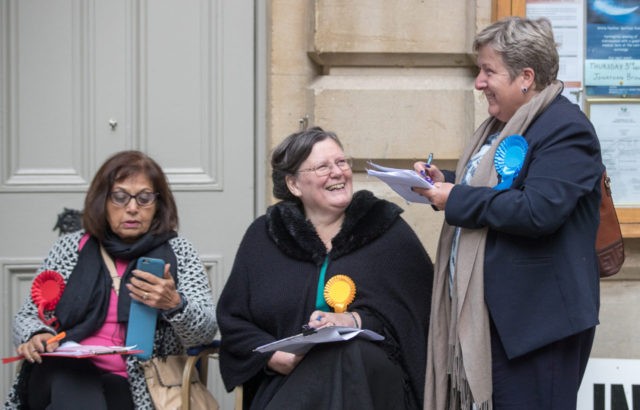The Prime Minister, Theresa May, has laid out her ambitions for the government to create a “shared society” which benefits all, not just the elite few.
She says she believes that government has a central role to play in the “quiet revolution” sparked by Brexit, to “change the way our country works – and the people for whom it works – forever.” But her critics have cautioned that, far from delivering a revolution, the rhetoric alludes to a continuation of the centrist politics of the last two decades.
Writing for the Telegraph, Mrs May spoke of her desire to tackle “some of the burning injustices that undermine the solidarity of our society”, citing as examples: “the shorter life expectancy for those born poor, the harsher treatment of black people in the criminal justice system, the lower chances of white working-class boys going to university, and […] the despicable stigma and inadequate help for those with mental health conditions.”
However, she then went further, stating her ambition to tackle “the everyday injustices that ordinary working class families feel are too often overlooked.”
She said that for too long hard working people have seen their living standards deteriorate, and their concerns ignored by the Westminster elite, causing resentment and divisions which were exposed during the Brexit referendum.
“Overcoming these divisions and bringing our country together is the central challenge of our time,” she insisted.
Her solution is to reject Thatcher’s supposed notion that there is “no such thing as society” – which in fact emphasised a definition of society as separate from the state – and her predecessor David Cameron’s “big society” in favour of a new mantra: the “shared society”.
A shared society, Mrs May explained, is one that “doesn’t just value our individual rights but focuses rather more on the responsibilities we have to one another; a society that respects the bonds of family, community, citizenship and strong institutions that we share as a union of people and nations; a society with a commitment to fairness at its heart.”
Ben Harris-Quinney, chairman of the Bow Group, Britain’s oldest conservative think tank, cautiously welcomed Mrs May’s calls for unity, but warned that the “shared society” she proposes must not fall in to trap of centrism.
Speaking to Breitbart London, he said: “The Prime Minister is of course correct in identifying the long neglected issue of cultural disunity in Britain, and that this affects everyone, rather than just those on the margins of society.
“There is no detail as to what she plans to do or how, and until such detail is published these statements risk falling into the “big society” or “Brexit means Brexit” category of rhetoric over policy.
“As Nigel Farage said last month, America’s political revolution was absolute and complete, ours was just as emphatic, but leaves a Parliament full of centrists which the public have roundly rejected. If May truly wants to address the burning frustration held by the British public, widespread reform of British politics needs to take place.”
Mr Harris-Quinney raised concerns in particular over Mrs May’s stated ambition for the government to “show all those who voted with such hope last year – many who voted for the first time in years, and others for the first time at all – that mainstream, centre-ground politics can deliver the change they need.”
“Centrism is only “mainstream” among the metropolitan elite, the British people want to see principle return to politics, not a doubling down on Blairite centrism,” he said.
“To do that we need a shift away from the first past the post system, reform of the House of Lords, reform of the Honours system and reform to the system in the Conservative Party which allows candidate selection to take place in London, rather than among grassroots supporters.”
He added: “Unless the need for this reform is swiftly recognised and defence of the indefensible third way politician is dropped, nothing of any substance will change.”

COMMENTS
Please let us know if you're having issues with commenting.